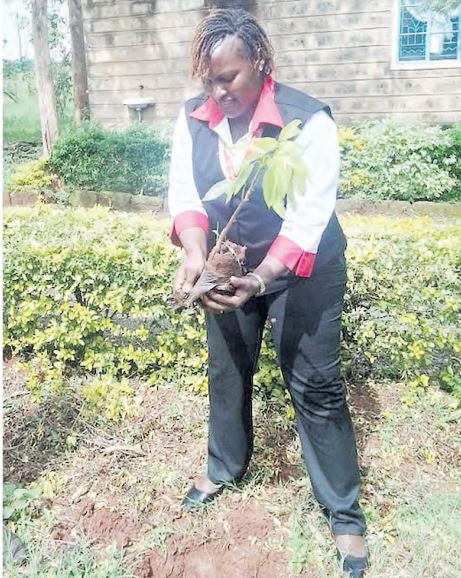Talk about a superwoman.
Susan Wambui Wangu’s mission is to be the mother of more than 1,000 children, an instrument of peace, and a seed of hope wherever she goes.
The assistant Kiambu county commissioner has adopted 37 children, in addition to her four biological children.
That makes her a mother of 41. In addition to providing for them, Wangu helps survivors of gender-based violence and supports rehabilitation and empower youth, especially those lost to drug abuse.
For years, the government official has been helping the less privileged by giving clothes, food, education, shelter, moral support, a shoulder to cry on and strength to carry on.
She goes above and beyond, transcending expectations of a good Samaritan. The Star asked what inspires her.
Who is Susan Wambui Wangu?
I am a Kenyan citizen, a wife to Charles Wachira Matu and a mother of four biological children and 37 children fully adopted. What’s your official job? I’m an assistant county commissioner based in Thika West Subcounty and seconded as manager of a Huduma Centre, Kiambu, located in Thika. I’m also a founder of the Juja for Juja Community-Based Organisation.
What is your vision and your mission?
My vision is to have enough safe homes for victims of gender-based violence. I’m also keen to ensure the youth have enough empowerment programmes, especially for those lost in drug abuse. I’m keen to see families afford to raise their children in a good way. My mission is to be a mother of more than 1,000 children, an instrument of peace and a seed of hope wherever I go.
What inspires you?
Just the feeling of my every action making a difference to another person’s life is truly incredible, there’s no other feeling like it. A high salary from a large corporation may get you some nice perks, but the memories and results from working for a charity last a lifetime! The blessings that come with giving and supporting people who are unlikely to ‘pay back’ are just too much.
How long have you been do these good deeds?
It’s been 20 years since I started doing charity work. But Juja for Juja was registered 10 years ago. How people have you reached so far? So far I have reached 9,500 families but as for individual hearts, I’ve touched 59,800.
Where do you see yourself in five years?
In five years, I see myself being a national reference in matters charity, nationally representing the less fortunate and standing with them. I see myself having rescued GBV victims and having transformed millions of youth.
What challenges do you face?
Some challenges include lack of financial capability to meet the huge number of cases that come to my desk. What is your view of society with regards to the less privileged? The society empathises with the less privileged but the resources to support them are scarce. Juja and Kiambu at large, for example, are very supportive of cases that need their intervention. It’s only that the demand is so high.
How do you mobilise resources?
I mobilise resources from well-wishers, members of the Juja for Juja group and companies. Most of the resources come from my salary and I thank the government for empowering me to extend a helping hand.
How do you relax?
My hobby is singing. Sometimes I MC at events and I take so much joy in it. However, the nature of my work limits my free time.
Parting thoughts?
One thing I would wish to tell
everyone is that there is no giver
who lacks. Giving is everything,
especially giving those who are not
likely to give anything in return.
If we all be our brothers’ keepers,
this world would be a very good
place.
Some mornings while going to
work I find someone lying along
the road.
I stop my car to check what could
be wrong. Sometimes, sometimes
I request my spouse or members
of Juja for Juja to come attend to
a stranger because I have a job to
protect.
Then during my free time I follow up on progress with that person. My family and the Juja community have been very supportive
and I’m very thankful









![[PHOTOS] Guardian Angel bus catches fire in Kikuyu](/_next/image?url=https%3A%2F%2Fcdn.radioafrica.digital%2Fimage%2F2025%2F04%2F58287f0a-f201-4a78-87f0-6f147ad8ba8a.jpg&w=3840&q=100)


